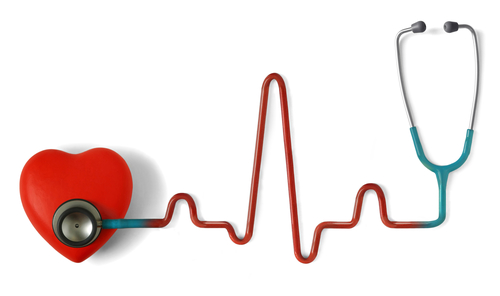 One of the conditions my father suffered with was atrial fibrillation or AFib. He was on several medications for this condition, as well as having a pacemaker and implanted cardioverter defibrillator, which could be very scary at times.
One of the conditions my father suffered with was atrial fibrillation or AFib. He was on several medications for this condition, as well as having a pacemaker and implanted cardioverter defibrillator, which could be very scary at times.
CARING FOR A LOVED ONE WITH AFIB
Taking care of someone you love is an important job, but it comes with extra responsibilities and challenges. Atrial fibrillation (sometimes called AFib) is a common heart rhythm disorder that affects more than five million Americans and can increase your loved one’s risk of stroke more than five-fold. Find out how you can support your loved one by learning more about AFib, understanding the treatment options, and making doctor appointments more productive.
7 TIPS FOR TAKING CARE OF SOMEONE YOU LOVE
- Learn About Atrial Fibrillation
- Learning more about your loved one’s condition can help you understand what they’re going through and help you provide the support and care that they need. Check out this background on atrial fibrillation and stroke risk to learn more about the condition, its symptoms, treatment options, signs of a stroke, and more.
- Know the Signs of a Stroke
- People with atrial fibrillation have a five times greater risk of stroke than those with normal heart rhythms. As a caregiver, it’s important to know the signs of a stroke so you can get your loved one immediate medical attention. Signs of a stroke include sudden:
- Numbness, weakness, or paralysis of the face, arm, or leg (especially only on one side of the body)
- Confusion
- People with atrial fibrillation have a five times greater risk of stroke than those with normal heart rhythms. As a caregiver, it’s important to know the signs of a stroke so you can get your loved one immediate medical attention. Signs of a stroke include sudden:
- Trouble speaking or understanding speech
- Difficulty seeing in one or both eyes
- Trouble walking, dizziness, loss of balance, or lack of coordination
- Severe headache with no known cause
- Be Aware of Bleeding Risks
- Blood thinners are very effective in reducing AFib stroke risk, but they can also increase the risk of bleeding. You can help your loved one by watching for signs of bleeding and seeking medical attention if he or she:1
- Finds bruises or blood blisters
- Falls or has an accident of any kind
- Blood thinners are very effective in reducing AFib stroke risk, but they can also increase the risk of bleeding. You can help your loved one by watching for signs of bleeding and seeking medical attention if he or she:1
- Notices red, dark brown, or black stools or urine
- Bleeds more with periods
- Has bleeding gums
- Feels sick, faint, weak, or dizzy
- Experiences a bad headache or stomach ache that doesn’t go away
- Watch Their Diet
- If your loved one is taking warfarin, it’s important to keep their intake of vitamin K consistent from day to day in order for the medication to work properly. Foods rich in vitamin K include green leafy vegetables (such as kale, collards, mustard greens, spinach, and turnip greens), cabbage, broccoli, brussels sprouts, and parsley. You and your loved one can still enjoy these foods, but don’t increase or decrease the amounts suddenly.2
- Avoid AFib Triggers
- Alcohol and caffeine can trigger an atrial fibrillation episode in some people. Eliminating or reducing your loved one’s consumption of alcoholic and caffeinated beverages may help. Nicotine can also aggravate AFib and increase the risk of coronary artery disease. So if your loved one smokes, be sure to talk to their doctor about ways to help them quit.3
- Discuss All the AFib and Stroke Risk Treatment Options
- The good news is that there are a number of treatment options out there to reduce your loved one’s risk of AFib stroke and other complications, so you can keep enjoying the special moments in life together. Be sure to learn about the available treatment options and talk to your loved one and his or her doctor to find the best AFib treatment plan for their situation.
- Get More Out of Doctor Appointments
- Joining your loved one at doctor visits is important to show your support and make sure you’re getting all your questions answered. It can help to bring a folder to appointments or use a mobile app that keeps track of medications, symptoms, other medical conditions, appointment notes, and pharmacy and doctor contact information. To help make appointments more productive, check out this Doctor Discussion Guide.
References:
- Atrial Fibrillation Medications. American Heart Association. http://www.heart.org/HEARTORG/Conditions/Arrhythmia/AboutArrhythmia/Atrial-Fibrillation-Medications_UCM_423781_Article.jsp. Accessed August 20, 2015.
- Important Drug and Food Information From the National Institutes of Health Clinical Center Drug-Nutrient Interaction Task Force. http://www.cc.nih.gov/ccc/patient_education/drug_nutrient/coumadin1.pdf. Accessed August 20, 2015.
- A Patient’s Guide to Living with Atrial Fibrillation. Circulation. 2008; 117: e340-e343doi: 10.1161/CIRCULATIONAHA.108.780577. http://circ.ahajournals.org/content/117/20/e340.full. Accessed August 20, 2015.
LEARN TO LOVE YOUR LIFE AGAIN
 Do you feel like you need to hit the REFRESH button on your life? Download our free guide and begin to create your best life yet!
Do you feel like you need to hit the REFRESH button on your life? Download our free guide and begin to create your best life yet!


